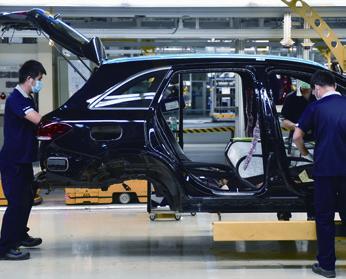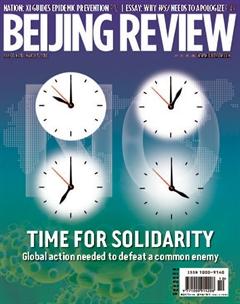Auto Sales Recovery Hopes High After Temporary Slump

Though auto sales and production have taken a hit from the novel coronavirus outbreak, industry insiders expect a rebound in April if the epidemic is brought under control.
The retail sales of passenger vehicles plunged 92 percent on an annual basis in the first 16 days of February, according to a report from the China Passenger Car Association (CPCA).
The industry association attributed the fall to the delayed consumption demand due to the earlier start of the Lunar New Year holiday when consumers shop less, and also due to the novel coronavirus outbreak, which has prevented people from going out to public spaces.
“The impact on the auto market is temporary, while the progress of the recovery relies on the measures taken by the government,” the CPCA said.
The government will roll out more policies to stabilize the sale of automobiles to mitigate the impact of the epidemic outbreak on the auto market, an official with the Ministry of Commerce said on February 20.
All localities are encouraged to promote the sales of new energy vehicles, ease vehicle purchase restrictions and carry out automobile replacement, the ministry said.
In Foshan in Guangdong Province, south China, customers will receive subsidies if they purchase locally registered vehicles complying with the National VI vehicle emission standard, a new tougher standard in line with those in the U.S., Japan, the EU and Canada.
The Ministry of Transport has decided to scrap some tolls across the country until the end of the epidemic prevention and control work to aid the smooth transportation of supplies and resumption of work. It will also help reduce logistics costs, stimulating the demand for cars, according to the CPCA.
People may want to buy their first car now due to the desire for their own private vehicles to protect themselves from the virus, the CPCA said.
It estimated that auto sales could rebound in April as the pent-up demand would be unleashed if the epidemic is effectively contained then.
On the supply side, some carmakers and suppliers of auto parts have suspended production. The hardest-hit province of Hubei, home to multiple auto joint ventures, manufactured 2.24 million cars in 2019, accounting for 8.8 percent of the countrys total output.
While the production halt risks disrupting the global supply chain, the impact will be relatively short-lived as Chinas adequate capacity will soon catch up to make up for the losses, according to an analysis by Great Wall Securities.
FAW-Volkswagen Automobile Co. Ltd. had resumed production at its four production bases across China as of February 17, and the carmaker said it will increase production efficiency to make up for the affected output.
The Tesla Shanghai gigafactory and its supplier also resumed operation on February 17. Teslas executives said the temporary shutdown may slightly impact the companys profitability for the first quarter this year, but it would “try its best to make up for the suspension when the epidemic takes a turn for the better.”
Several other automakers, including the Guangzhou Automobile Group, SAICGM-Wuling and BYD, are set to refit their production lines to make medical supplies such as face masks as shortages hamper efforts to contain the epidemic.
Ensuring the nationwide resumption of production and epidemic control efforts are mutually reinforcing the fight against the outbreak, a senior official of the National Development and Reform Commission said.
Seen from the perspective of the whole year, the impact on the supply-end will be limited, according to Great Wall Securities.

